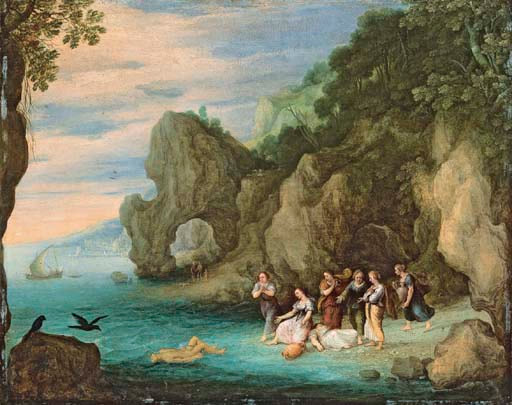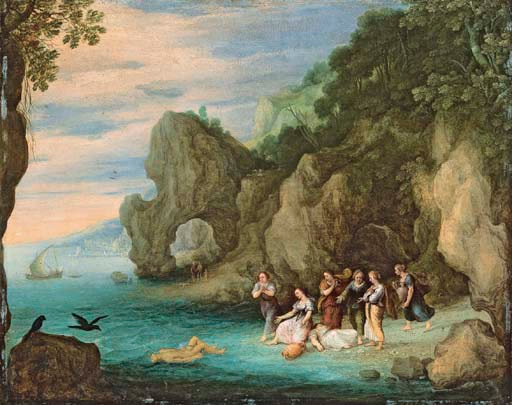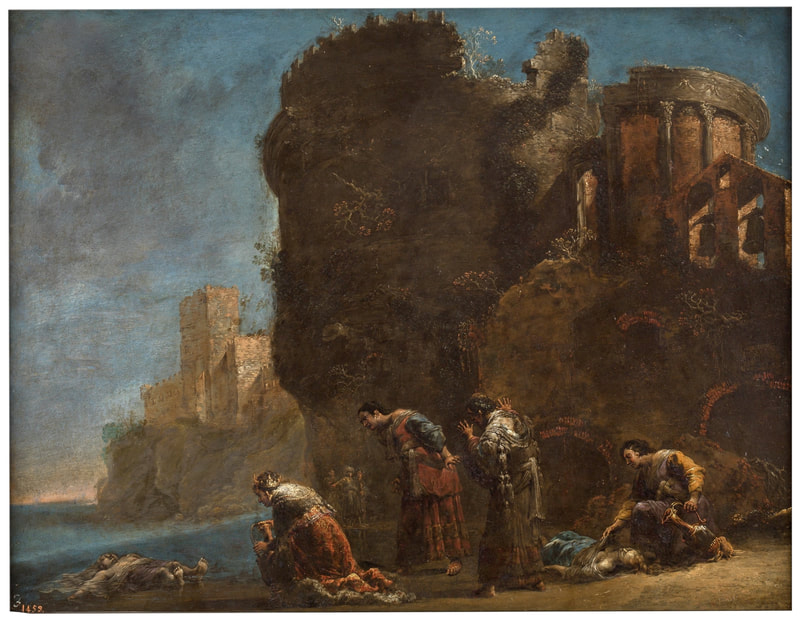Hecuba Discovering the Body of her Son Polydorus
Hecuba discovering the body of her son Polydorus - Jacob Willemsz de Wet the Elder (c 1610–between 1677-1691)
Date:
Medium: Oil on panel
Dimensions: 69.0 x 54.5 cm
Medium: Oil on panel
Dimensions: 69.0 x 54.5 cm
|
Active after 1632, Jacob Willemsz de Wet, painted Hecuba discovering the body of her son Polydorus as an oil on panel piece of work, and of course, it depicts an event from Greek mythology.
Hecuba (Hecabe) was the wife of King Priam, and at the start of the Trojan War, their youngest son, Polydorus, was placed for safekeeping in the care of King Polymestor. Induced by gold, Polymestor would kill Polydorus, and in some versions of the event, his body washed up on the shore near Hecuba, who was now a captive of the Achaeans. More information about Polydorus can be found here - (website opens in new window) Jacob Willemszoon de Wet |
|
Born: c1610; Haarlem, Dutch Republic
Died: between 1677 and 1691: Cologne
Nationality: Dutch
Art Movement: Baroque, Dutch Golden Age
Died: between 1677 and 1691: Cologne
Nationality: Dutch
Art Movement: Baroque, Dutch Golden Age


